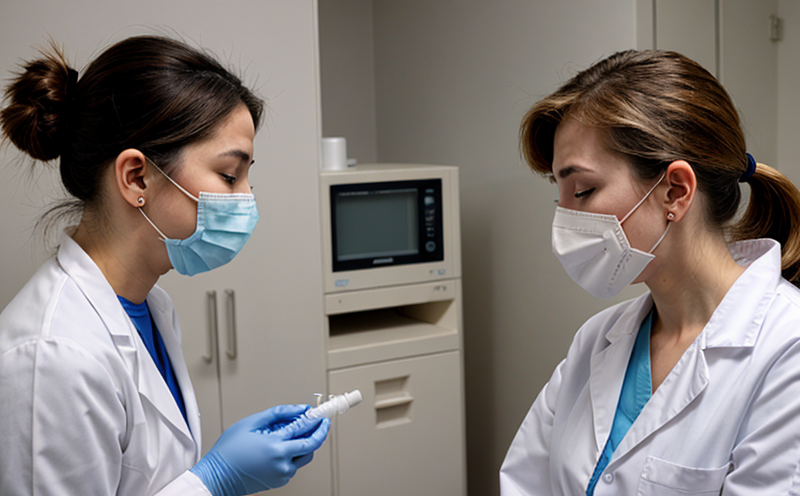Cytokine Release Testing in Preclinical Immunology
The field of preclinical immunology has seen significant advancements, and with these come the need for robust testing methodologies that can accurately assess immune responses. Cytokine release testing stands out as a critical tool in this context. This method evaluates how various stimuli affect the production and secretion of cytokines by immune cells. These proteins play key roles in mediating inflammation, regulating immune responses, and coordinating the actions of different cell types involved in immunity.
At its core, cytokine release testing involves exposing isolated immune cells to specific antigens or other triggers designed to activate their response. The test measures the subsequent increase in intracellular or extracellular cytokines through a variety of techniques including ELISA (Enzyme-Linked Immunosorbent Assay), flow cytometry, and luminex bead arrays. This approach allows researchers to observe not just if an immune cell responds but also how strongly it reacts under different conditions.
The reliability of such tests is paramount in ensuring accurate results that reflect real-world scenarios within the body. Factors such as temperature control during incubation phases, precise timing for sample collection post-stimulation, and consistent handling procedures all contribute to maintaining high standards. Compliance with international standards like ISO 17025 ensures that laboratories performing these tests adhere strictly to best practices.
One of the most significant advantages of cytokine release testing lies in its ability to provide detailed insights into complex interactions among various types of immune cells. By examining changes in cytokine levels over time, scientists can better understand mechanisms behind diseases and potential therapeutic interventions. For instance, understanding how different pathogens elicit distinct patterns of cytokine production could lead to more effective treatments for infectious diseases.
Another application area where this testing method shines is personalized medicine – tailoring therapies based on individual genetic makeup or previous exposure history. With increasing emphasis placed on precision healthcare approaches, being able to predict patient responses accurately becomes crucial. Cytokine release tests offer valuable information regarding which treatment regimens might work best for particular individuals without causing adverse effects.
Furthermore, this technique has been instrumental in drug development processes by helping identify early signs of toxicity or efficacy issues before they progress further into larger clinical trials. By catching potential problems at an earlier stage, companies can save time and resources while improving overall product quality.
In conclusion, cytokine release testing represents a cornerstone in preclinical immunology research due to its versatility, accuracy, and relevance across multiple domains of study. As our understanding of immune systems continues to evolve, so too will the sophistication required for assessing these crucial biological processes.
Industry Applications
Cytokine release testing finds extensive application in several sectors including pharmaceuticals, biotechnology, and academia. In pharmaceutical development, it helps assess the safety profile of new drugs by identifying any off-target effects on immune cells that could lead to adverse reactions.
- Pharmaceutical companies use this method during early stage clinical trials to ensure potential treatments do not disrupt normal immune function.
- Biotechnology firms leverage it for developing biologics such as monoclonal antibodies, where understanding the interaction between drug candidates and target cells is essential.
Academically speaking, researchers often employ cytokine release tests when studying autoimmune disorders or exploring novel ways to modulate immune responses. This allows them to explore new therapeutic strategies aimed at restoring balance within dysregulated systems.
Additionally, there are emerging uses in areas like cancer immunotherapy where understanding how immune checkpoints operate is vital for designing effective treatments against tumor growth.
International Acceptance and Recognition
- ISO 17025 Compliance: Laboratories conducting cytokine release tests must follow stringent quality management systems to ensure accurate results.
- ASTM E2936 Standard Practice: This document provides guidelines on how to perform and report data from such tests, ensuring consistency across different laboratories worldwide.
The acceptance of these methods extends beyond national borders; they are widely recognized by regulatory bodies including the FDA (Food and Drug Administration) in the United States and EMA (European Medicines Agency) in Europe. These agencies rely heavily on data generated from reputable labs using validated protocols when evaluating new drugs for market approval.
Moreover, international collaborations often involve sharing results obtained via cytokine release testing to advance collective knowledge about immune systems. Such cooperation fosters innovation by allowing experts from diverse backgrounds to contribute their expertise towards solving common challenges faced in immunology research and therapy development.
Environmental and Sustainability Contributions
Incorporating sustainability into laboratory practices contributes positively to both environmental health and operational efficiency. Here are some ways our service supports these goals:
- Eco-Friendly Reagents: We use environmentally friendly reagents whenever possible, reducing waste generation.
- Energy Efficiency: Our facilities are equipped with energy-efficient lighting systems and advanced air conditioning units to minimize power consumption.
By adhering to these principles, we aim to reduce our ecological footprint while maintaining high standards of service quality. This commitment aligns perfectly with the growing trend towards green practices in scientific research communities around the globe.





